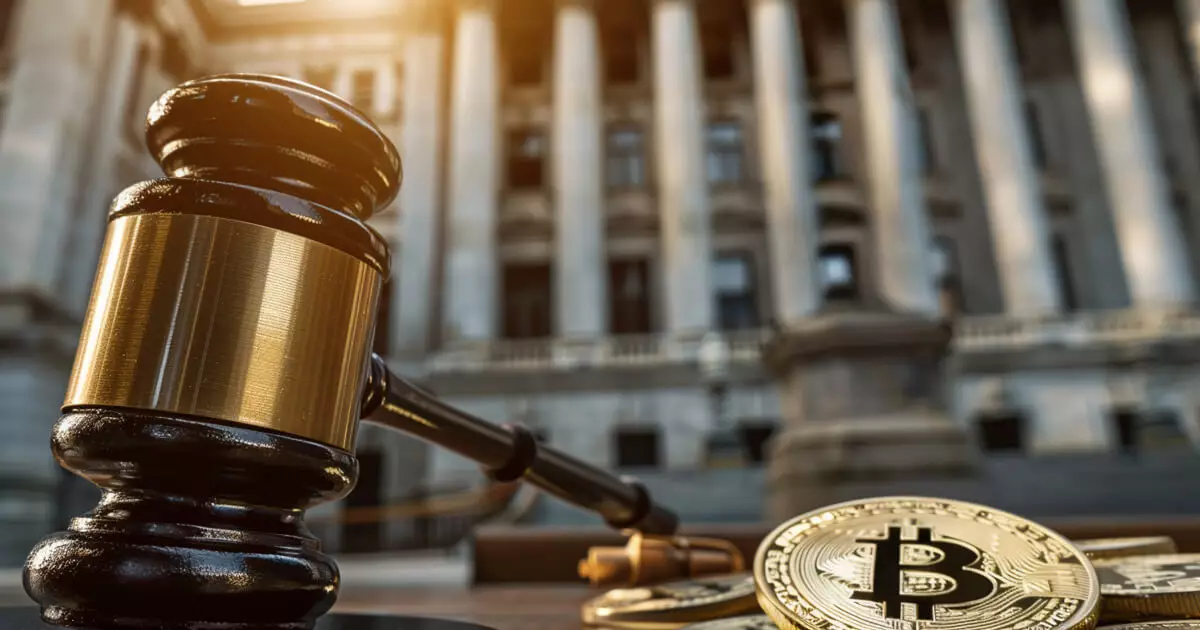The emerging landscape of cryptocurrency regulation has sparked efforts to establish solid protections for Bitcoin self-custody, reminiscent of tactics employed by the cannabis sector to maneuver through complicated federal regulations. The Satoshi Action Fund, a pivotal player in this movement, aims to carve out “safe havens” for Bitcoin users by advocating for state laws that reinforce their rights to possess and manage their digital assets legally. This approach is reflective of a greater trend wherein state initiatives may prompt eventual shifts at the federal level, aiming for a future where individuals can confidently navigate the Bitcoin ecosystem without facing undue risks or penalties.
Dennis Porter, the CEO and co-founder of the Satoshi Action Fund, has drawn parallels between the ongoing efforts to legitimize Bitcoin self-custody and the successful legalization of cannabis in various states. He asserts that when federal statutes fail to align with state regulations, the latter can offer a shield to individuals engaged in what could be considered legally precarious activities. Porter’s stance reflects a belief that swift state-level action can preempt potential federal crackdowns, similar to how cannabis laws have flourished despite ongoing federal prohibition.
Historically, the cannabis movement faced significant challenges when it sought to enter the mainstream, yet local legislation enabled many states to enact measures that shielded benign users and operators. By instituting state-level laws to safeguard Bitcoin rights, Porter argues that they can diminish the risks associated with waiting for federal policies to catch up; a delay he believes hindered the growth of the cannabis industry for several decades.
The quest for establishing robust state-led protections for Bitcoin benefits from a historical lens that highlights how other social movements—such as women’s suffrage, civil rights, and same-sex marriage—often found footholds in state legislation before influencing broader federal changes. Porter cites research suggesting that concentrated legislative activity at the state level can lead to the federal government adopting similar frameworks, creating a cascade effect that strengthens the initial state initiatives.
However, this historical viewpoint is met with skepticism by some legal experts, who caution against overreliance on state legislation when federal supremacy could undermine these efforts. This tension raises questions about the long-term viability of using state-based protections as a shield against an unfriendly federal environment.
Legal commentator Joe Carlasare expresses caution regarding the efficacy of state laws in the face of overarching federal authority. He underscores a critical tenet of U.S. law: federal law typically supersedes state law. The implications of this hierarchy pose challenges to state initiatives that could be preempted if federal legislation were to emerge that contradicted or nullified state protections. Drawing attention to the nuances of these legal landscapes reinforces that while the self-custody of Bitcoin may not be universally outlawed, any effective protection at the state level must scrutinize the potential reactions from federal agencies.
Despite these concerns, legislators in Pennsylvania have manifested a noteworthy development by passing House Bill 2481, otherwise known as the “Bitcoin Rights” bill. This bipartisan effort, which passed with overwhelming support, serves to safeguard personal rights related to the custody of digital assets and delineates criteria for how transactions are taxed. The bill’s passage is a significant indicator that there is substantial support for cryptocurrency regulation housed within state frameworks, pointing toward the increasing acceptance and integration of digital currencies.
As Pennsylvania progresses towards finalizing this legislation, it stands as a model for other states considering similar approaches amidst a backdrop of uncertain federal guidelines. With around 1.5 million crypto owners residing in Pennsylvania, the implications of this legislation are far-reaching, potentially setting the stage for other states to initiate comparable regulatory frameworks.
While it remains clear that the looming shadow of federal regulators continues to cast doubts and uncertainty across the crypto landscape, the persistent push by state advocates symbolizes a determined endeavor to not only protect but also normalize Bitcoin self-custody within the fabric of legal frameworks. As the actions of the Satoshi Action Fund and surrounding stakeholders continue to unfold, they hold the potential to reshape how Bitcoin regulation is viewed in the United States, blending ambition with caution in an evolving digital age.

